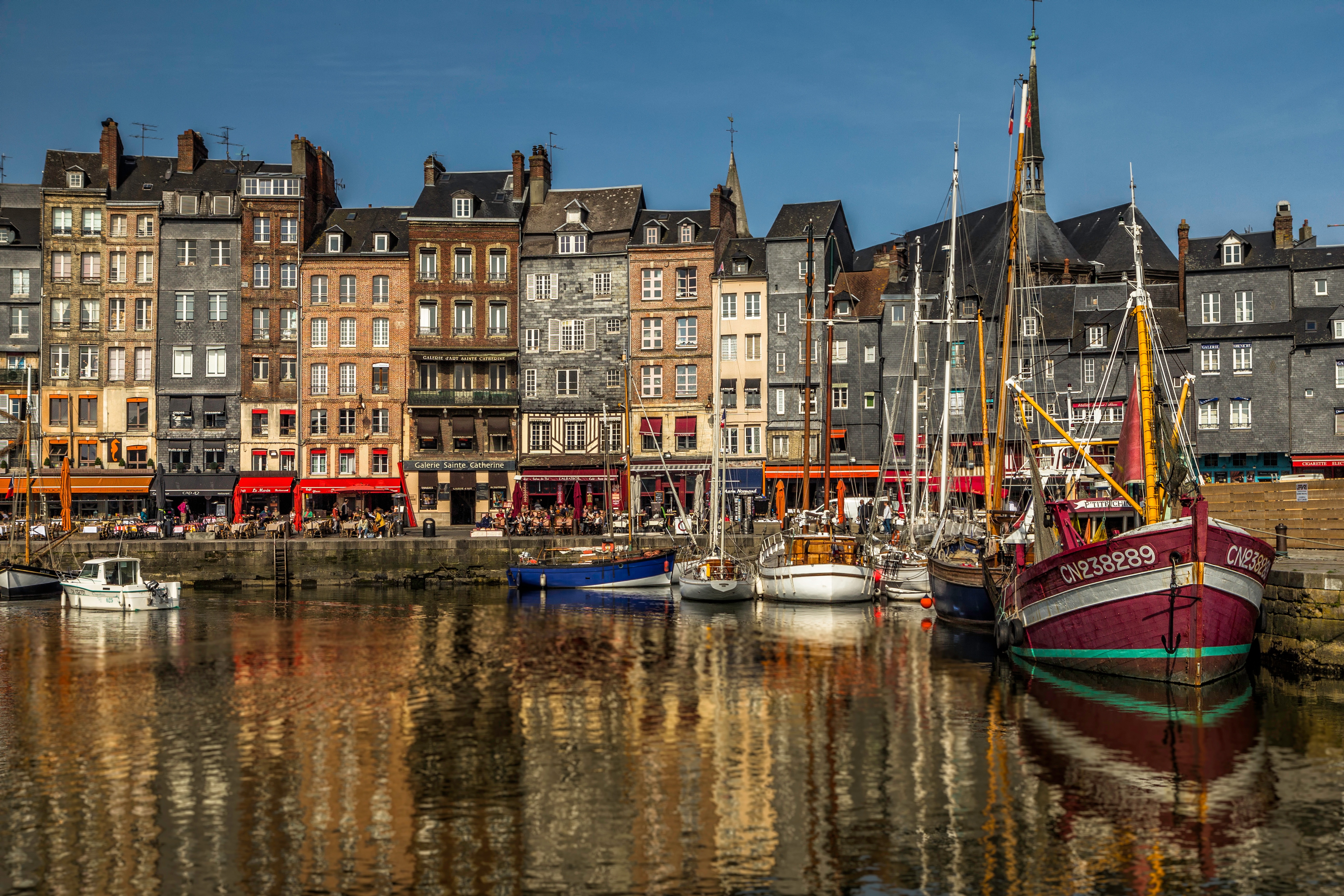Dieser Beitrag enthält Werbung – advertising.
At eight o’clock sharp, he was standing in front of her house, black trousers, white shirt open to the chest, jacket also open, a yellow handkerchief in his breast pocket. In his hand was a bottle of champagne that he had snatched from René. Marie opened the door in jeans and a cotton jumper.
“Oh, I thought we’d stay here.”
“Sure, it’s my everyday outfit.” Leblanc grinned.
from: Kein Tag für Jakobsmuscheln
(own translation)
No English translation so far!
The Misery of midlife crisis
Jacques Leblanc has been transferred from Paris to Normandy, to the tranquil town of Deauville. He worked for the homicide squad in Paris and is also confronted with many a death in Deauville. Even though the clocks seem to go a little slower in Normandy, there is no real peace and quiet in the cemetery.
Jacques is in his late forties, turns fifty, passes fifty … He is ageing and he has a problem with it. All of a sudden, he no longer seems so good-looking. There are younger competitors and he wonders whether he can keep up – but only in secret.
He lives alone, but he has a whole host of women around him that he can go out with, spend the night with … Of course, all the women are younger, but then he falls head over heels in love with a very young, very good-looking woman – and realises that he can’t make a move on her. She is very nice to him, but nothing more. Jacques starts to wonder.
… and there is even more in the novels that is worth thinking about. Each novel addresses a current problem in our lives and our world. Whether it’s the fishing industry that is emptying the oceans or the trade in illegal drugs, Jacques repeatedly encounters deaths and crimes that somehow seem to be linked to these developments. Then there are the machinations in the literary world, which are not so clean either … and of course international terrorism … and France’s past towards the end of the colonial era … (Somewhere in every novel, there’s finger wagging – perhaps that’s typically German! The author comes from Germany).
So there’s a lot going on in Deauville, the famous holiday resort in Normandy.
Jacques can’t complain about a lack of work. At his side is Nadine, a young policewoman, eager, intelligent and on the career track, although not so obviously. Jacques and Nadine get on very well and work well together – that’s all there is to it. There are also the forensics people, the pathologist … but they all tend to stay in the background. Jacques can basically do as he pleases in his small police station.
The cases? They always start with a death and inconsistencies, so it soon becomes clear that it’s a murder. Most of the time it doesn’t stop at murder …
But Jacques is also affected by modern bureaucracy and cost-cutting measures: He eventually learns that his small police station is to be closed, i.e. a merger with the headquarters in Le Havre is announced. Jacques is not thrilled, but … somehow things will go on. Of course, Jacques has always solved all the crimes in his Deauville. So he has a good reputation, even though he’s apparently so old that he’s suggested to consider early retirement when he overshoots his mark once and falls foul of the secret service. But … In the next volume, we will see a Jacques Leblanc who devotes himself to special tasks.
There is also Marie. Marie is a widow with two grown-up children. Jacques and Marie had an affair when they were both still living in Paris. Now they both find themselves in Deauville – and their relationship revives, dries up, is revitalised … Jacques can’t decide to make a commitment. Marie longs for a partner, but … They are together and travelling to Cameroon for several weeks when Jacques is suspended for a few months after his escapade with the secret service.
Cameroon? This is where Jacques’ past comes to the fore. His parents, a married couple of teachers, have spent most of their lives in Cameroon. Jacques grew up in France and attended boarding schools. The relationship between son and parents … difficult. After Jacques’ father dies, his mother returns to France and has difficulties adjusting to her new life. Jacques suddenly finds himself confronted with family drug problems.
Jacques’ mother is a real stickler and is always good for a surprise. She eventually returns to Cameroon and remarries. Jacques swallows and accepts it … and travels to Cameroon with Marie. Has he overcome his midlife crisis? That remains to be seen.
… and Jacques loves good food – like all French people (especially all French people in German French crime thrillers!).


